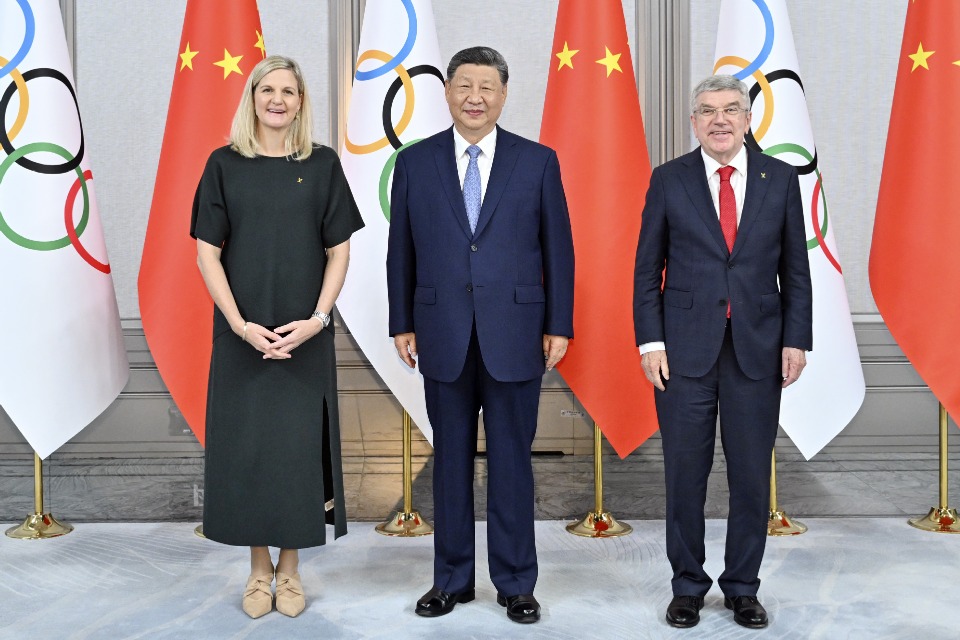Misleading visitors to China won't help Japan

Japan has warned its citizens visiting China about activities that could raise suspicion of their being engaged in espionage, and urged them to beware of "a possible rise in anti-Japan sentiments or demonstrations" in China. Last month Japanese media reported that six Japanese nationals, detained in East China's Shandong province and South China's Hainan province in March, are under investigation for violating Chinese laws.
It is true that China has intensified the crackdown on espionage. Three years ago the Standing Committee of the National People's Congress, China's top legislature, enacted the Counterespionage Law amid growing security concerns. And a municipal policy issued in April says any Beijing resident who provides useful information on espionage or related activities will receive a reward up to 500,000 yuan ($72,460).
But Japanese media outlets have gone a bit too far by speculating that the number of Japanese nationals detained or arrested in China is "particularly high" and saying it is "unclear" what constitutes an act of espionage in the country. Asking Japanese visitors to avoid taking photographs in place other than tourist spots in China, too, is an exaggeration.
While Japan's Ministry of Foreign Affairs was right to offer detailed advice to Japanese citizens visiting China so as to prevent them from unwittingly violating Chinese laws and falling in trouble, its "considerable" interpretation of China's counterespionage efforts risks misleading foreigners planning to visit the country.
The travel guide for Japanese nationals suggests that taking photographs at military and some other facilities in China such as ports, as well as bridges and other structures near the China-Democratic People's Republic of Korea border, could constitute an act of espionage, as does unintentionally carrying substances related to drugs. It also hints at the possibility of Japanese travelers being targeted while visiting China, as this year marks the 80th anniversaries of the Marco Polo Bridge Incident, which triggered the Chinese People's War of Resistance against Japanese Aggression (1937-45) across the country, and the Nanjing Massacre, in which 300,000 Chinese were killed by the invading Japanese army.
Such a narrative stops short of warning those visiting China with dubious or criminal intentions, however few, while suggesting that China's security authorities could single out Japanese citizens during "sensitive" times.
China is advancing the rule of law, and has intensified its efforts to deal with crimes such as espionage and drug trafficking according to the law, without any stress on the nationalities of suspects. And a person is likely to be arrested only when the authorities have sound evidence of his or her being involved in a crime, rather than viewing all visitors from certain countries as espionage suspects.
A report issued in April by national security authorities in Beijing said overseas espionage agencies and other hostile forces are engaged in more disruptive activities against China, from political infiltration and subversion to intelligence theft. The report came just three months after a device with instructions in foreign languages, found by two fishermen in Lianyungang, East China's Jiangsu province, turned out to be data-collecting espionage equipment.
As for the so-called sensitive timing, rarely have Chinese citizens, although some still hold grudge against Japan for various reasons, vented their anger on Japanese visitors. Even while discussing the history of World War II, the Chinese government always differentiates between the Japanese people and the then Japanese government and imperial army.
Instead of warning the Japanese people of the "sensitive timing" and trying to mislead the world about China's efforts to safeguard its national interests, the Japanese government, especially rightwing Japanese politicians, should issue a self-warning: efforts to whitewash the war crimes of the then Japanese government and army will not succeed.
The author is a professor of Japan studies at China Foreign Affairs University.


































